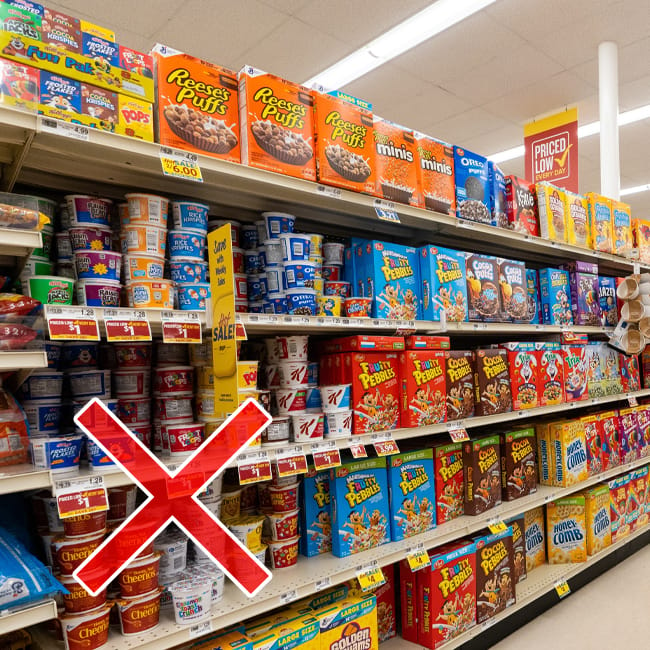The gut, often referred to as the “second brain,” plays a pivotal role in our overall health and wellbeing, influencing everything from digestion to immune function and even mental health. However, certain dietary and lifestyle factors can disrupt the delicate balance of the gut microbiome, leading to gut damage and a host of digestive issues such as bloating, gas, and discomfort.
We spoke with various health experts to learn about nine gut-damaging beverages that can lead to bloating and digestive issues. They told us that carbonated beverages, sugary drinks, excessive coffee or tea, dairy drinks such as milkshakes, drinks with protein powders, energy drinks, orange soda, flavored sparkling water, and alcohol are the ones to minimize.


1. Carbonated Drinks
Carbonated drinks, including sodas, have been linked to digestive problems and bloating due to their high gas content. These beverages contain dissolved carbon dioxide, which creates bubbles and fizz upon consumption. When ingested, these bubbles can accumulate in the gastrointestinal tract, creating increased gas production and bloating.
"The fizz you hear isn't just excitement, it's air getting trapped in your digestive system. Soda can lead to uncomfortable bloating and excessive gas production. Carbonation introduces excess air into your digestive system, expanding your stomach and causing bloating," Krutika Nanavati, registered dietitian and nutritionist, says.
Instead, she suggests something simple like water to quench your thirst. "Plain water is the ultimate gut-friendly beverage; it aids digestion, flushes toxins, and keeps you feeling refreshed without any bloating or gas."

2. Sugary Drinks
Sugary drinks, including fruit juices and sweetened beverages, are often implicated in digestive issues and bloating due to their high sugar content and artificial additives. Consuming large amounts of sugar can disrupt the balance of bacteria in the gut, leading to inflammation and digestive discomfort.
"Fructose, a common sweetener in juices, is poorly absorbed by our gut. This fermentation process releases gas, leading to bloating and discomfort. Fructose fuels intestinal bacteria, contributing to gas production and bloating," Nanavati notes.
As for healthier alternatives, she recommends "infused waters with fruits, herbs, and spices like ginger, lemon, and mint because they offer refreshing flavors and potential digestive benefits."

3. Excessive Coffee & Tea
Excessive consumption of coffee and tea, particularly those high in caffeine and dairy additives, could lead to digestive discomfort and even bloating. Caffeine is a natural stimulant that can increase the production of stomach acid, potentially adding to the irritation of the gastrointestinal lining and exacerbating symptoms such as heartburn, bloating, and abdominal discomfort.
Nanavati says that "while moderate coffee and tea can have health benefits, overindulging can irritate the stomach lining and disrupt digestion. This can lead to heartburn, indigestion, and gas in sensitive individuals. Overdoing coffee and tea can inflame the stomach lining, triggering acid reflux and gas production."
Instead, she says to choose unsweetened iced teas or natural fruit juices mixed with water to reduce sugar intake and prevent potential irritation to the gut.

4. Dairy Drinks Such As Milkshakes
Dairy drinks like milkshakes can be a source of indigestion and bloating, particularly for individuals who are lactose intolerant or sensitive to dairy products. Milkshakes typically contain milk as the primary ingredient, which is rich in lactose, a type of sugar that some people have difficulty digesting. When lactose intolerant individuals consume dairy products, they may experience symptoms such as bloating, gas, abdominal cramps, and diarrhea. Additionally, dairy drinks can be high in fat and calories, which can contribute to feelings of discomfort and bloating, especially if consumed in excess.
"Milkshakes are very high in sugars and dairy. The high amount of sugar can lead to gut inflammation which can cause things like gas, bloating, and indigestion. Additionally, the high lactose content can cause similar symptoms as many people have a hard time breaking down lactose," says Jesse Feder, a personal trainer & registered dietitian and contributor to myfoodallergyteam.com.

5. Drinks With Protein Powders
Protein powder, a popular supplement for muscle building and recovery, can sometimes be associated with bloating for certain individuals. This bloating may occur due to several factors, including the presence of certain additives, lactose, or allergens in some protein powders. Some formulations contain artificial sweeteners, sugar alcohols, or dairy-based proteins that can contribute to digestive discomfort and bloating in sensitive individuals.
“It's quite common for people to experience bloating from protein powders such as whey or soy, as these can be difficult to digest,” notes Jessica Sepel, nutritionist and founder of JSHealth Vitamins.
“Additionally, protein powders are often high in protein but low in carbs. This imbalance of macronutrients can be additionally challenging for the body to metabolize and thus digest,” explains Katherine Metzelaar, MSN, RDN, CD and Certified Intuitive Eating Counselor. “If you are having a protein drink, I would suggest having a carbohydrate snack with it such as a piece of toast.”

6. Energy Drinks
Energy drinks, known for their stimulating effects and caffeine content, may contribute to bloating in some individuals. These beverages often contain high levels of sugar, artificial sweeteners, and carbonation, which can lead to increased gas production and bloating. Furthermore, the caffeine in energy drinks may have a diuretic effect, potentially causing dehydration and affecting the balance of fluids in the body. Dehydration can lead to a sensation of bloating and discomfort.
"Carbonated energy drinks can negatively affect gut health because they can cause gastric distress, interfere with nutrient absorption, and [even] contribute to diarrhea," warns Kelsey Butler, MS, RDN.

7. Orange Soda
Like other sugary sodas, orange soda's link to bloating and stomach fat is worth considering. The high sugar content in orange soda can lead to increased calorie intake and, when consumed in excess, contribute to weight gain, particularly around the abdominal area. Additionally, the carbonation in sodas can cause the stomach to expand temporarily, leading to feelings of bloating and discomfort.
"Even the name of the drink is misleading because there is little to no trace of orange in this drink. Containing an unrealistic amount of sugars, orange soda is one of the unhealthiest drinks to consume, its content is filled with citric acid and sugar water which can cause stomach issues if consumed in a higher amount. Artificial flavors are added to give off a tangy orange like taste while colors are also added to give it an orange-y aesthetic. A can of orange soda contains an astonishing 43 grams of sugar," says Hannah Shine, Health Manager at HourGlass Waist. All of this added sugar and artificial ingredients can have negative impacts on your stomach.

8. Flavored Sparkling Water
The carbonation present in sparkling water can potentially lead to bloating as the bubbles may cause temporary stomach distension. While plain sparkling water is usually calorie-free and can be a hydrating choice, flavored varieties may contain artificial sweeteners or natural sugars that contribute to calorie intake. Though the link between flavored sparkling water and stomach fat is less direct compared to sugary sodas, the added ingredients in some flavored options could impact weight management if consumed excessively.
"While it may seem like a healthier alternative, flavored sparkling water can still contribute to bloating. Some brands contain artificial sweeteners, which can cause gastrointestinal distress and bloating in certain individuals," says Ayman Dandashi, owner of wellness platform, Fungus Head.

9. Alcohol
Alcohol consumption is often associated with bloating and digestive issues due to its impact on the gastrointestinal system. Alcohol irritates the lining of the stomach and intestines, leading to inflammation and increased production of stomach acid, which can cause bloating.
"Excessive alcohol consumption can disrupt the balance of gut bacteria, leading to dysbiosis and impaired gut function," Dr. Blen Tesfu warns. "Alcohol can damage the lining of the intestines, increasing intestinal permeability (leaky gut) and allowing harmful substances to enter the bloodstream. Chronic alcohol intake has been associated with an increased risk of inflammatory bowel diseases (IBD) like Crohn's disease and ulcerative colitis."


























